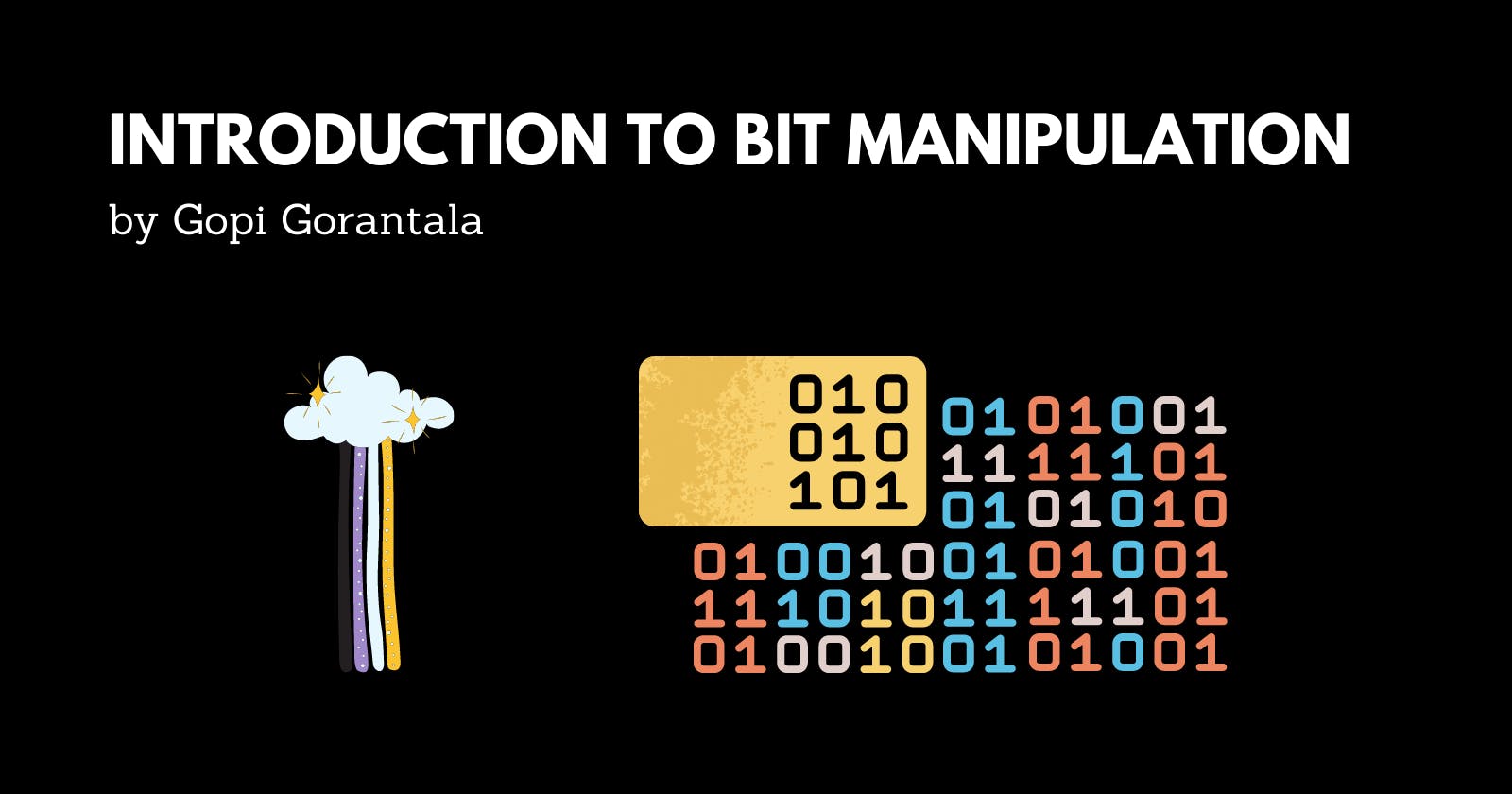Thanks for choosing this course! The techniques you learn here will go towards building strong algorithmic problem-solving skills.
In order to ace coding interviews for tech companies, it is necessary to understand Bitwise operators, which are usually fast compared to arithmetic and other math operations.
- This course is designed for everyone who wants to improve on their bit manipulation skills.
- It targets all the software aspirants who want to get strong with Mathematical and Analytical thinking in solving Algorithmic problems.
- This is a critical topic for interviews with FAANG companies.
- This course helps competitive programmers who participate in CodeChef, Topcoder, CodeForces, HackerRank, HackerEarth, Leetcode, etc.
Prerequisites
If you understand Bitwise operators, this course will help you re-write your algorithmic solutions with bit manipulation solutions.
If you are new to Bitwise operators, this course is perfect for you. We start simple before moving to more complex concepts for bitwise operators. We then learn how to solve coding problems using Bitwise operators.
Good to have knowledge of:
- Basics of a programming language
- if-else conditional blocks
- loops
- primitive types, their range, Etc.
What is Bit Manipulation?
Bit manipulation is the act of algorithmically manipulating bits or other pieces of data shorter than a word. Bit manipulation is something that has constant time complexity. This tutorial explains the basics and why Bitwise operators are used in programming.
Bit manipulation is the process of applying logical operations on a sequence of bits to achieve a required result. It is an act of algorithmically manipulating bits or other pieces of data that are shorter than a word.
Computer programming tasks that require bit manipulation include:
- Low-level device control
- Error detection and correction algorithms
- Data compression
- Encryption algorithms
- Optimization
For most other tasks, modern programming languages allow the programmer to work directly with abstractions instead of bits representing those abstractions.
Bit manipulation can obviate or reduce the need to loop over a data structure and can speed up coding as bit manipulations are processed in parallel.
Throughout the course, we offer tons of examples to help you understand the patterns used in solving bit manipulation algorithmic problems.
The problems solved under these patterns use a varied set of algorithmic techniques that you will encounter day-to-day.
We will start with a brief introduction to each topic before jumping into practice problems. Under each topic, the first problem will explain the underlying pattern in detail to build the concepts that can be applied to later problems. The later problems will focus on the different constraints each problem presents and how our algorithm needs to change to handle them.
Let's start to understand the important concepts of Bitwise operators.
Bit-level operations
- Sometimes, it becomes mandatory to consider data at the bit level.
- We have to operate on the individual data bit. We also need to turn on/off particular data bits during source code drafting. At that time, we must use a bitwise operator to make our task easier.
- C/Java programming provides us with different bitwise operators for the manipulation of bits.
- Bitwise operators operate on integers and characters but not on data types float or double.
- Using Bitwise operators, we can easily manipulate individual bits.
- C/Java programming supports six bitwise operators.
List of Bitwise operators

Operator Uses

This is a wrap and we learn more about bit tricks in the following lessons.
